Guess They Found Their Vote Fraud! Black Woman Tried To Help Black People Vote!
Last Wednesday, in Douglas, Georgia, a jury deadlocked on a case of felony voter fraud against City Commissioner Olivia Pearson. The trial was the latest round in a years-long campaign against a woman who threatened the Republican stranglehold on power in Douglas. Only one person on the jury voted to clear her of her charges.
October 2012
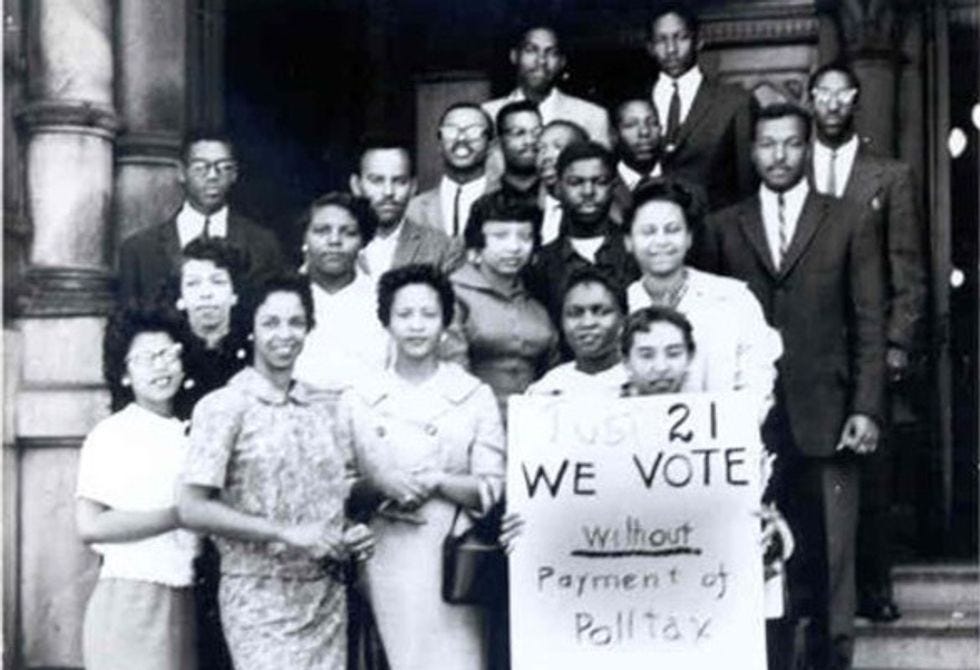
Douglas is a small, poor town in the southern part of Georgia. Its population of 43,000 is about two-thirds white, one-third black. In 1999, Olivia Pearson was the first black woman elected to the Douglas City Commission. The longtime advocate for civil rights has run unopposed for the seat ever since. In 2012, Pearson spearheaded a successful effort to elect Doyle Wooten as Douglas's first black, Democratic Sheriff. She enlisted the help of her friend James Hicks to get out the vote. As recounted in Buzzfeed :
“A lot of blacks were frustrated” by how police treated black youth, said Hicks, who faces four counts of both improper voting assistance and false swearing. Hicks said he didn’t break any voting laws but merely impressed upon his neighbors — especially the ones hanging out on the corners, the high school dropouts, the friends of his youngest sons — that they could make a change by going to the polls.
“I get the people that don’t nobody else think about,” Hicks said. “The little young gangbangers — those are the people you need to reach.”
On October 15, 2012, the first day of early voting, Pearson assisted several new voters who had difficulty operating the computerized voting machines. No one has ever alleged that she touched the machines or told anyone whom to vote for. But Georgia's law bars assisting any voter unless that voter is illiterate or disabled.
Pearson’s defense was that after helping [Diewanna] Robinson, she’d done what poll workers had asked her to do: sign a form that would allow her to help people who were having difficulty using the voting machines. Pearson said she didn’t know turning in those forms meant she was vouching for whether someone was illiterate or disabled.
“It was my understanding that it was the poll workers’ responsibility,” Pearson said. “I was abiding by the instructions of the poll workers.”
After the election, Pearson, Hicks, Sheriff Wooten's wife and one of Sheriff Wooten's cousins were investigated and eventually charged with vote fraud.
December 2015
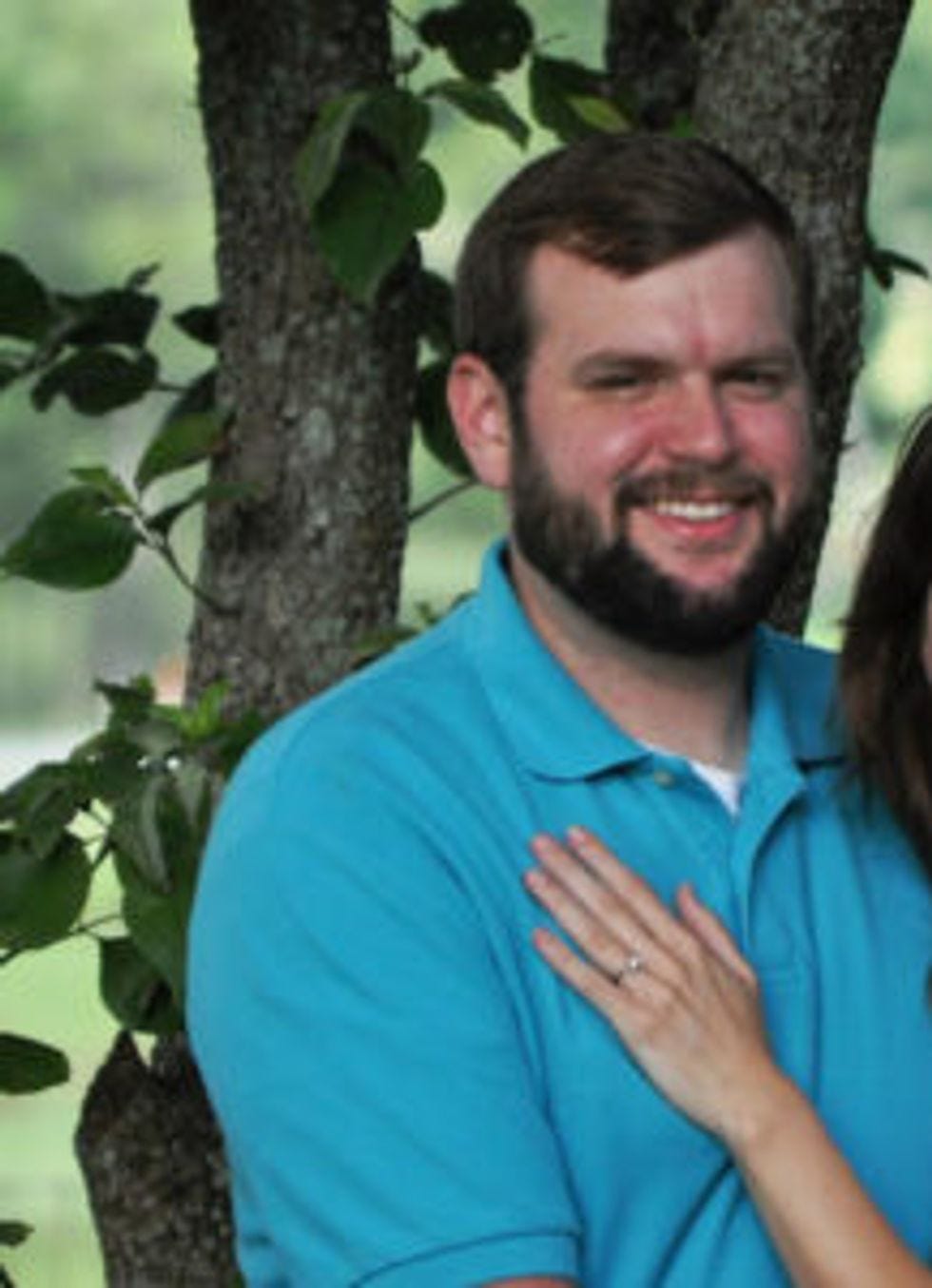
Georgia Prosecutor Ian Sansot
On December 5, Pearson and a friend saw three police officers with their guns trained on a parked car with three black passengers. She observed for 20 minutes while the police determined that the occupants of the car were not suspects in a recent murder. When instructed by the police to step back, she complied. However, the officer's report stated
[B]y Pearson intervening with this traffic stop, she hindered and endangered ALL the officers, occupants of the stopped vehicle and her party. Her actions this night could be construed as obstructing or hindering of a law enforcement officer (OCGA 16-10-24).
Local prosecutorIan Sansot, who was already investigating Pearson for voter fraud, saw this story reported in the local paper Douglas Now. He then contacted the Georgia Bureau of Investigation.
Therefore, I am requesting the Georgia Bureau of Investigation to investigate this matter to determine whether or not a violation of the Georgia criminal code has occurred (specifically with regard to obstruction and violation of oath of office). Additionally, the article claims that Commissioner Pearson has a history of being involved in traffic stops. Therefore, as well as the incident highlighted in the article, I am requesting the GBI to investigate an other incidences as well, if any such exist.
Watching police on the street is not illegal, even in Georgia . But when the Bureau declined to prosecute, Sansot responded, "I'm confused. Your department will not be initiating an investigation then?"
March 2016
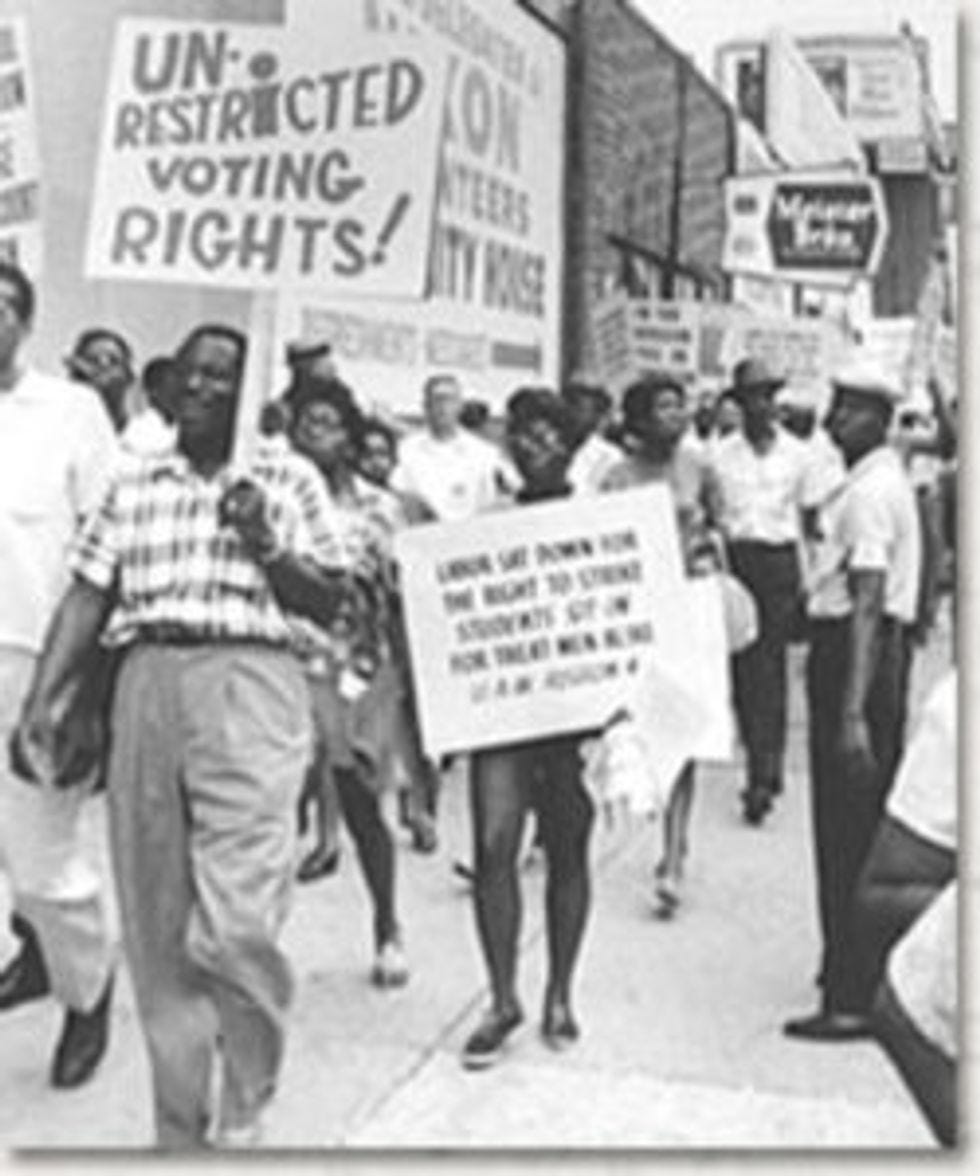
Georgia authorities waited almost four years to bring charges against Pearson. Only in the run up to the 2016 elections did she face prosecution for alleged vote fraud. In March of that year, Pearson, Hicks and two others appeared before the Georgia Board of Elections, as reported in Buzzfeed .
But the secretary of state had investigated dozens of instances in which Pearson haddriven people to the polls or otherwise urged them to vote — instances in which the county elections board chairman alleged her aid crossed the line into illegal voter assistance.
Before the State Elections Board in March, Pearson responded to some of those allegations, including that she had improperly helped her 64-year-old aunt, Evelyn Ross, to vote. Pearson testified her assistance at the polls was never coercive or illegal.
“At no time have I ever touched the screen or told them who to vote for,” Pearson told the panel.
“I could only relay to them what the screen says or whatever and give them an option as to how they would want to proceed,” she said.
Coffee County Elections Supervisor Misty Hayes was a witness at the hearing and Olivia Pearson's subsequent trial.
Supervisor Hayes testified that during the 2012 election she approached Commissioner Pearson and explained to her the conditions which would allow her to assist voters. Seventeen voter assistance forms were tendered into evidence by the prosecution, all bearing Commissioner Pearson's signature, although Commissioner
Pearson did dispute the validity of two of the signatures.
It is unclear why Ms. Hayes continued to supply Ms. Pearson with voter assistance forms if she suspected that they were being used to commit voter fraud.
“What do I get out of suppressing a voter?” said Misty Hayes, the elections supervisor for Coffee County. “It’s a joke.” She declined to discuss any specific case but said that cracking down on voter fraud “is just common sense. It’s the law.”
It is unclear why Ms. Hayes failed to challenge suspected fraudulent votes at the time they were cast, as would be expected of the Elections Supervisor.
May 2016
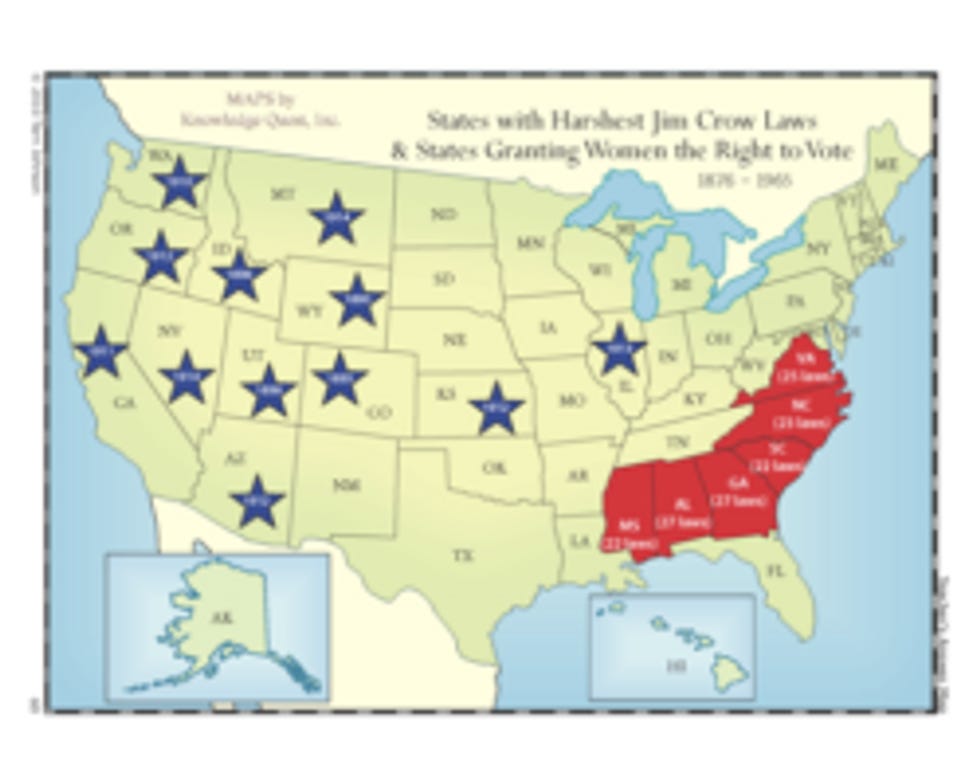
Olivia Pearson, Charlie Hicks, Evelyn Griffin and Charlie Mack Wooten III were indicted on multiple counts of improperly assisting a ballot and false swearing. They were arrested and booked into the county jail before being released on bond.
November 2016
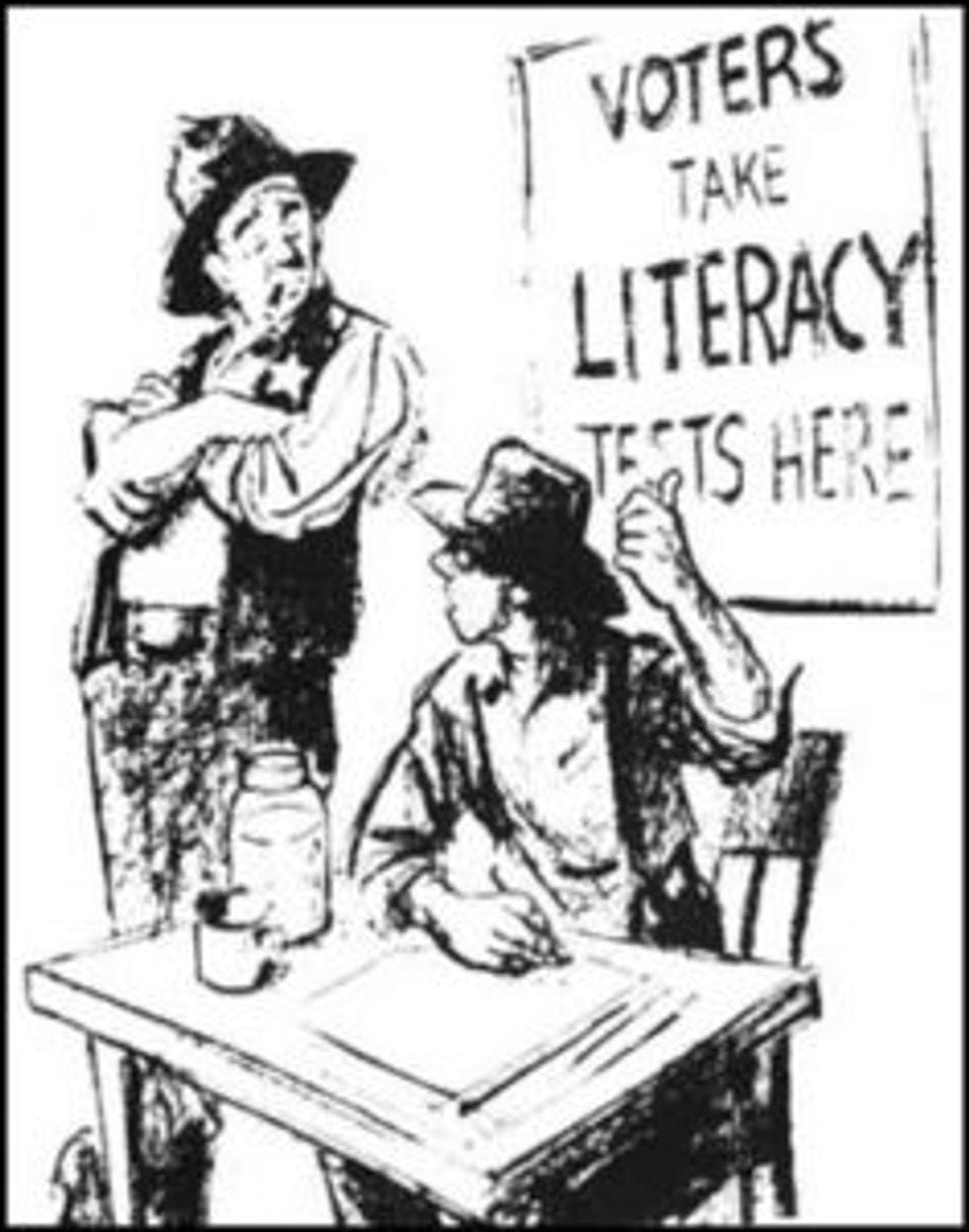
With Pearson and Hicks under indictment, black voter registration efforts in Coffee County collapsed . Republican vote tallies ticked up only slightly between 2012 and 2016, but the number of Democratic voters declined by 20%.
Meanwhile, voter-registration efforts in the black neighborhoods that once rallied support for Wooten have nearly disappeared without the leadership of Pearson and Hicks. “That’s because those with a backbone were made an example of,” said Roper, the local civil rights leader.
Stand with me in opposition to the left's blatant attempts to disrupt Georgia's elections! pic.twitter.com/hDnjCrkBh5
— Brian Kemp (@BrianKempGA) October 19, 2016



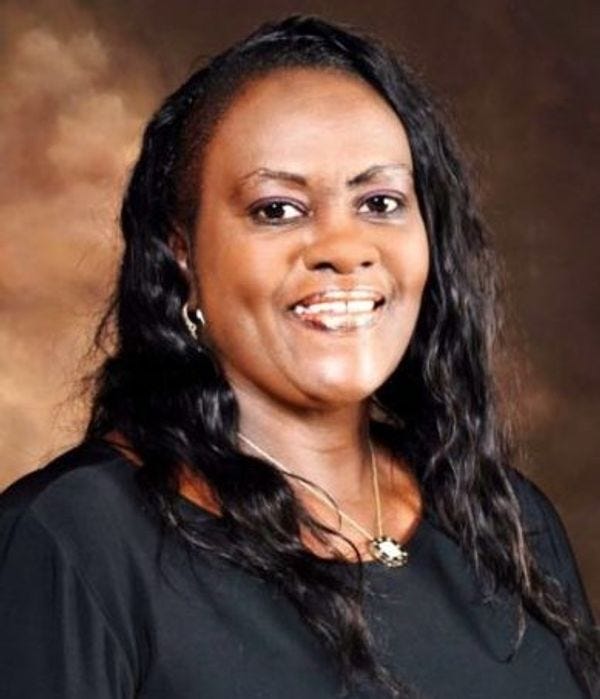
May I suggest a machete ???
To be honest, Intelligent Black Women scare a lot of Black Men, as well, but for different reasons.